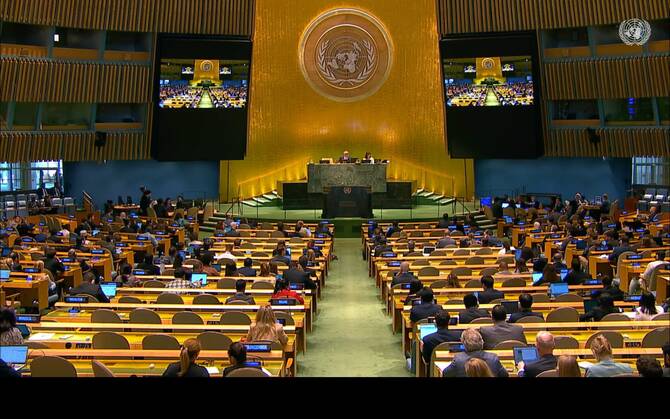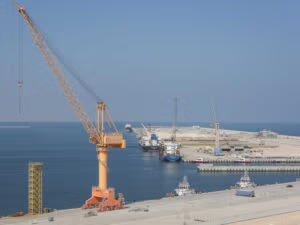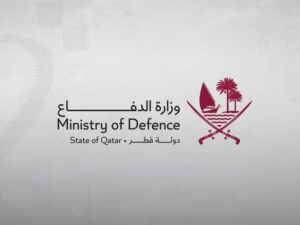The UN General Assembly on Friday voted to resume a high-level international summit focused on the two-state solution, setting a new date of September 22 for the continuation of talks that had been suspended in July amid rising tensions and violence in the Middle East.
The move follows a joint proposal by Saudi Arabia and France, which the Assembly adopted despite strong objections from both the United States and Israel. Both countries formally disassociated themselves from the decision, calling the initiative politically driven and counterproductive to peace.
The summit, officially titled the High-Level International Conference for the Peaceful Settlement of the Question of Palestine, originally convened during the General Assembly’s 79th session but was paused on July 30. It will now resume during the Assembly’s 80th session, and notably, at the level of heads of state and government — a signal that backers view the process as requiring urgent international attention.
Proponents Call for Urgent Action
Speaking before the vote, Abdulaziz Alwasil, Saudi Arabia’s representative to the UN, delivered remarks on behalf of Riyadh and Paris, emphasizing that the initiative was not targeted at any particular party.
“The situation on the ground in Palestine has never been more dire. Escalating violence, deepening humanitarian suffering and the erosion of hope for peace all underscore the urgency of our collective responsibility,” Alwasil said.
“This process cannot be allowed to stall. The resumption of the conference is a substantive commitment by the international community to act with resolve, consistency and responsibility.”
He added that the proposal was “a reflection of our shared commitment to uphold international law and relevant UN resolutions.”
Israel and the U.S. Strongly Object
Israel, however, sharply rejected the resolution and questioned the legitimacy and intentions behind it. The Israeli representative accused the proposal’s backers of pushing the initiative through without transparency or fair procedure.
“This is not a serious attempt at peacemaking, it is a performance, a publicity stunt,” the Israeli envoy said.
“Far from advancing peace, it threatens to prolong the war, embolden Hamas, and undermine real diplomatic efforts.”
The representative also warned that “gestures” like this send the wrong message to militant groups.
“Terrorist groups such as Hamas have publicly praised recent international initiatives, interpreting them as validation of their tactics.”
The United States also formally opposed the vote, echoing many of Israel’s concerns and criticizing both the process and the timing of the proposal.
“We were surprised and dismayed to see this proposal added to the agenda only yesterday,” the U.S. envoy said, citing concerns about the lack of transparency around the text, timeline, and budgetary impact.
The envoy called the summit’s resumption an “ill-timed publicity stunt,” arguing it could worsen the situation on the ground.
“This is an insult to the victims of Oct. 7,” the U.S. representative added, referencing the 2023 Hamas-led attacks on Israel.
“Our focus remains on serious diplomacy, not stage-managed conferences designed to manufacture the appearance of relevance.”
With the resolution passed, the summit is now scheduled to resume in late September, bringing together world leaders to revisit the long-standing issue of a two-state solution between Israel and Palestine. While supporters view the move as a much-needed revitalization of peace efforts, detractors warn it could complicate or even derail ongoing diplomatic initiatives.






